
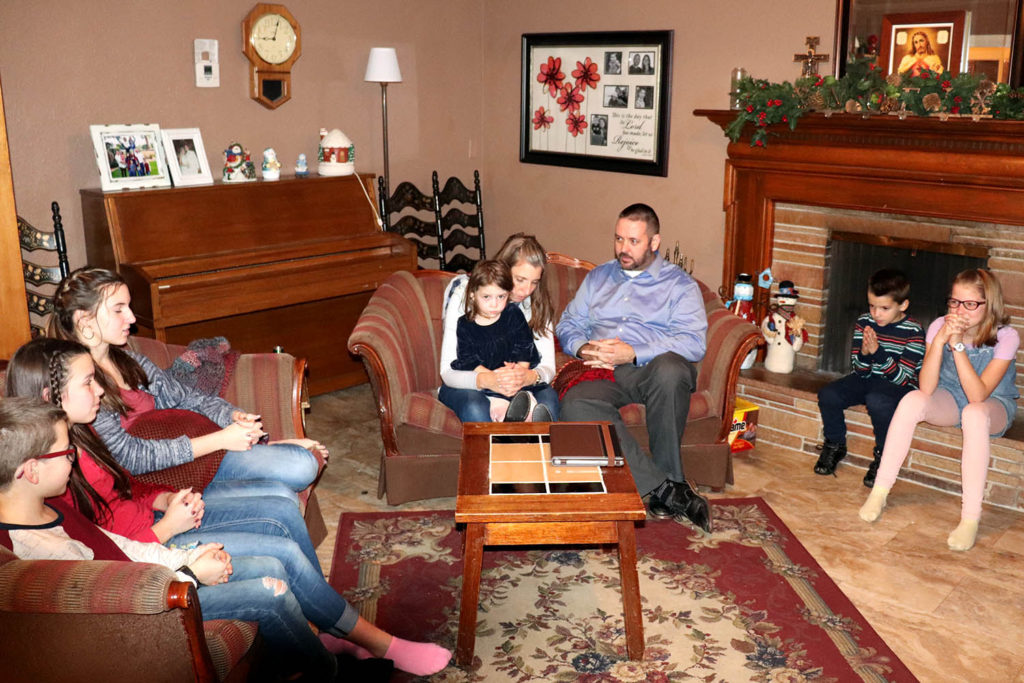
The times were tumultuous. Student protests rocked the nation. The civil rights movement battled racism. The sexual revolution was in full swing and the Pill was embraced by millions of American women.
To say that change was in the air would be an understatement. Such was the time in which the Diocese of Phoenix came into existence Dec. 2, 1969.
Just three months prior to the establishment of the Diocese of Phoenix, no-fault divorce became the law of the land in California and every other American state soon followed. It was a development that would impact the institution of marriage in the United States for decades to come.
Divorce, once rare and mostly unthinkable, became increasingly commonplace as Americans began to view marriage less as the building block of families and communities and more as a means of personal fulfillment. A contraceptive mentality led millions of couples to abandon the Church’s bedrock teaching on marriage.
Since its foundation, the Church has sought ways to help the faithful live their matrimonial vows. Scott and Aurora Hicks have been involved in the Worldwide Marriage Encounter movement for 17 years, leading three retreats a year in which couples learn tools to improve their marriage. First held in the Diocese of Phoenix in 1978, Marriage Encounter, the Hicks say, enriched their marriage. Seven Marriage Encounter weekends are held in Arizona each year; in 2020, there will be eight.
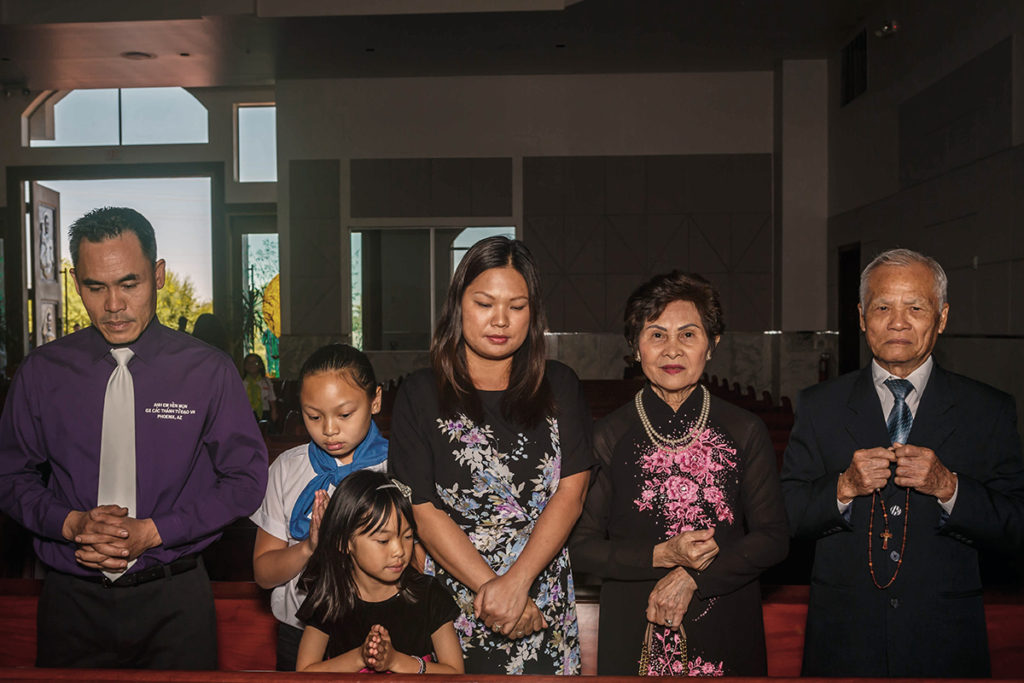
Even though they were Catholic, the Hicks said that God wasn’t at the center of their marriage.
“We went to Mass, we baptized our children and made our sacraments in the Church, but I personally did not have an understanding of God in our marriage,” Aurora said.
The tools that Marriage Encounter teaches — prayer as a couple, listening, and asking for forgiveness — help couples improve their marriages. The Marriage Encounter community helps couples to use those skills and receive encouragement from others trying to live their vows faithfully. Groups of couples meet monthly or biweekly, learning to keep Christ in the center of their relationship.
That’s something Peter and Cynthia Lemieux, who married in 1972, have been involved in teaching through their marriage ministry for 42 years, preparing countless couples for matrimony and working with others to heal wounds arising from marital woes. They say that over the years, they’ve seen encouraging developments.
“Many years ago, there was a huge reluctance for people to even do any marriage prep. They just wanted to get it over with,” Peter said. These days, however, “we see a larger and larger percentage who are really anxious to bring their Catholic faith into their marriage.”
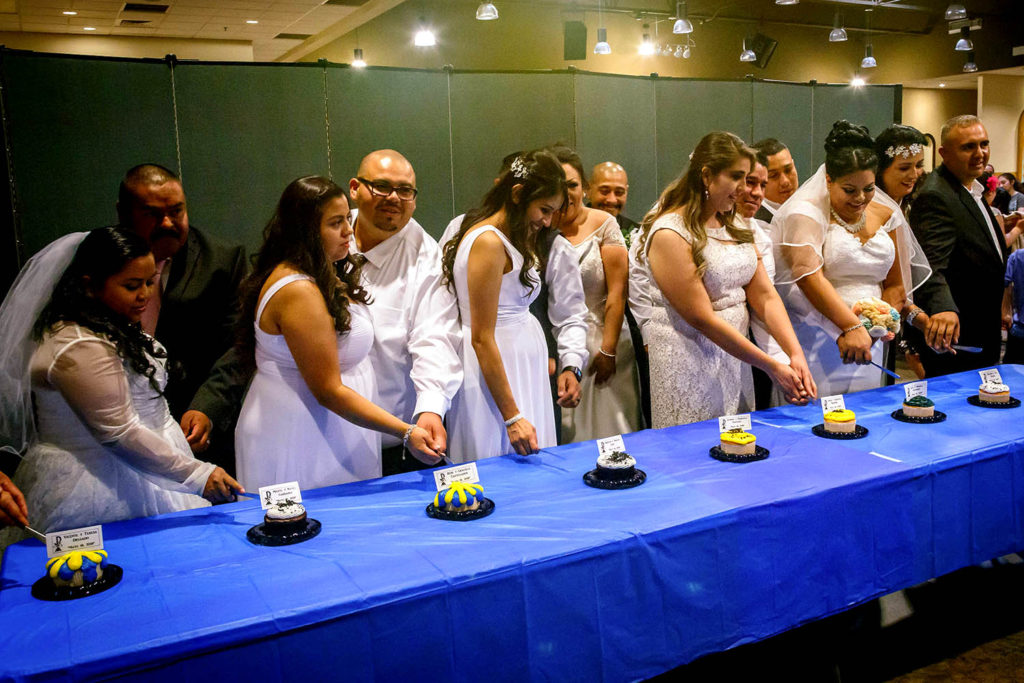
Peter says some of that is due to strong youth ministry programs at the parishes and at Newman Centers. “We see those people coming forward and they’re the fruit of those excellent programs being run,” Peter said.
Cynthia offered a succinct appraisal of the biggest threat to marriage: Divorce. If it isn’t someone’s parents who get divorced, chances are fairly good that a sibling will go through it, or that individual might personally go through a divorce. The long work hours many put in to be successful on a professional front can also rob couples of precious time together, too, she said.
“Another problem of the culture is this emphasis on self so that you evaluate marriage solely on the question of ‘Are you happy?’ That is not the formula for marriage, and it never has been,” Peter said.
Catholic author, blogger, mother of eight and Phoenix resident Leila Miller offered a similar view. With around 4 million page views for her self-titled blog, her influence is growing. Miller says the impact of the American secularist culture on marriage over the last 50 years has been devastating.
“Back when society understood that certain things are immoral and oppose the good of the family — such as contraception, divorce, ‘gay marriage’ — we each knew ourselves to be a part of a family, and that we had a heritage,” Miller said. “Marriage was understood to be the very cell of society, and that society could only be healthy and functioning if families were healthy and functioning. Now, we not only practice those family-destroying evils that I listed above, but we call them good.”
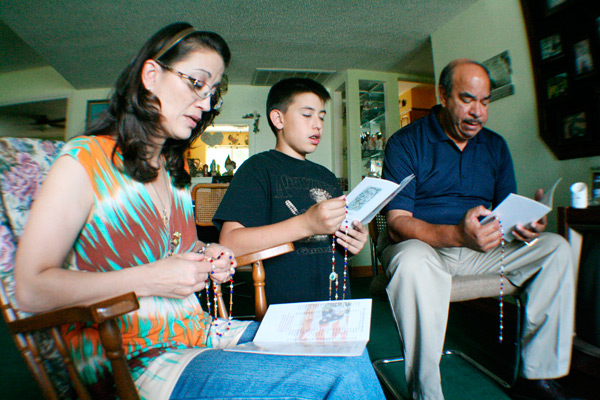
Miller, alongside the Lemieuxes, lauded the work of Bishop Thomas J. Olmsted to bolster marriage and family life. From strengthening marriage preparation to providing strong support for Natural Family Planning to several series of columns in The Catholic Sun addressing marriage and family life, Bishop Olmsted’s episcopacy has been fervent in its efforts to rebuild a culture of life.
His 2015 apostolic exhortation “Into the Breach” addressed the crisis of masculinity that is to be found at the root of many of today’s marriage and family woes. Originally aimed at men of the Diocese of Phoenix, the exhortation has been translated into 13 languages and reached many tens of thousands around the globe.
Bishop Olmsted writes that “through spousal love, men live out a strength that endures, a strength for which the world longs and a strength that will stabilize a crumbling society,” a society that’s been broken by sin and corrupted by the sexual revolution. The exhortation calls men to lives of chastity and prayer so that they can love their wives as Christ loves the Church.
In “Complete My Joy,” his 2018 apostolic exhortation on family life, Bishop Olmsted lays out the framework for imbuing marriages and family life with Catholicity in pragmatic and inspiring ways.
“When we are aggravated and fighting in the family, when tempers are short and patience is thin, it is time for a spiritual cleansing. Teach your children to go to confession regularly, once per month, and you will instill in them a habit that will guard their soul throughout their lives,” Bishop Olmsted writes.
“Sometimes when we talk about marriage, it’s so easy to talk about all the problems,” said Peter Lemieux, “but we need to remind each other, we have met so many powerful great families raising children in our diocese — it is something. It really is.”
In spite of the threats to marriage and family life, the Lemieuxs say, there is much reason for hope.
Dcn. Jaime Whitford and his wife Martha have been providing such hope through their marriage ministry at Queen of Peace Parish in Mesa. Thirteen years ago, the Whitfords began reaching out to couples in the parish. Not all of them had been married in the Church.
“We have to have an open, positive attitude toward people, one that is not trying to put them on trial for morality and asking why are they living the way they do,” Dcn. Whitford said. And whether the couples were cohabitating or simply married civilly, the Whitfords reached out to gather them in to the bosom of the Church.
Would they like to attend a meeting? Help decorate the hall for a party? Those kinds of invitations draw people in. “They feel important — they feel they are contributing,” Dcn. Whitford says. The catechesis can then begin.
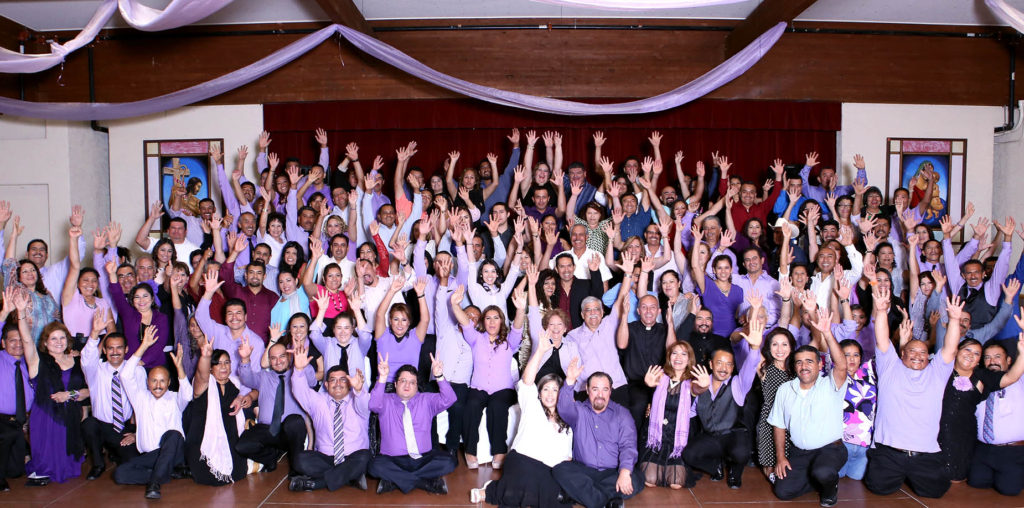
“Once they are in the group’s program, they will learn. If you don’t give them an opportunity to be close to the Church, how will they know? That’s an attitude that we think has helped many couples and has helped the ministry to be what it is today.”
The Whitfords hold monthly meetings for couples in which they address topics of concern in relationships. Friendships are built. Support is given. And conversions happen. Many of the couples, once they are married in the Church, start having children again.
As the diocese marks its jubilee anniversary next month, the Whitfords will have helped 500 couples marry in the Church during their years at Queen of Peace, many of them in what they call “multiple weddings” involving two dozen couples or more sharing one ceremony. Last year, for example, of the 32 couples the Whitfords prepared, 25 were married at once; the other seven couples chose individual wedding dates.
Four years ago, they began presenting couples with a crucifix to hold as they make their marital vows, symbolizing the presence of Christ in their marriage. The couple then takes the crucifix home to display prominently.
“When they have trouble, they can come talk to me or my wife,” Dcn. Whitford says. “We have sessions with them so that they can resolve their difficulties. We all need that help.”





